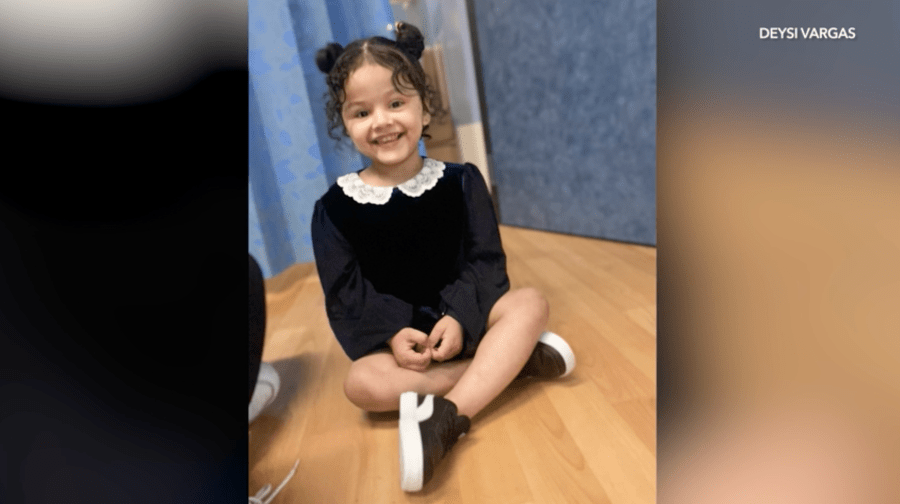The mother of a 4-year-old girl who was born in Mexico and taken to L.A. two years ago is speaking out after the Trump administration ordered them to self-deport, despite her daughter receiving lifesaving care in America.
Deysi Vargas told KTLA that her daughter Sofia (which is a pseudonym to protect her identity) may look like a healthy, happy child; however, she was born prematurely and suffers from short bowel syndrome, a condition that does not allow her body to absorb nutrients on its own.
Vargas’ young family was allowed to come to the U.S. in 2023 through a temporary humanitarian permission process so that Sofia, aged 2 1/2 at the time, could receive the care she needs to stay alive, which is not available in her native country.
Specifically, Sofia requires intravenous nutrition 14 hours a day, and the family, who now lives and works in Bakersfield, drives down to Children’s Hospital of Los Angeles every six weeks for treatment.
“She is living her life as normal as possible for a girl her age,” Deysi Vargas told KTLA 5’s Carlos Saucedo in Spanish. “It’s all thanks to the medical treatment she’s receiving in this country…this type of treatment doesn’t exist in my country.”
However, in the wake of the Trump administration’s crackdown on immigration, Sofia’s medical protection has been revoked, and now the Vargases must leave the U.S. on their own accord. Federal officials also canceled the parents’ work permits, according to Gina Amato, directing attorney at Public Counsel’s Immigration Rights Project.
“The federal government sent the family notices in April this year, canceling their humanitarian parole, which was otherwise valid until July,” Amato said.
Amato added that doctors at CHLA are worried that if Sofia doesn’t get the proper care, she will die.
“It’s not speculative,” Amato said. “It’s that she will die within days.”
A concerned Deysi Vargas reiterated the life-or-death circumstances surrounding her daughter’s future at a press conference held Wednesday morning in conjunction with the family’s attorneys and with Sofia present.
“I am very scared because Sofia runs the risk of not receiving the treatment that she requires for her condition, and if we return back to our country, she would be back at the hospital day and night,” she said through a translator. “I have a lot of faith…I believe in God and he has already blessed us with many miracles.”
“When we lived in Mexico, my daughter did not get any better,” she continued. “Now, with the help that she’s received in the United States, my daughter has the opportunity to get out of the hospital, know the world and live like a normal girl of 4 years.”

Sofia uses special equipment to get nutrients throughout the day and night; she is connected to an IV for 14 hours and receives four feedings via a gastral tube throughout the day that take about an hour, according to a family spokesperson. The equipment is included in a special backpack that Sofia wears is part of the 14-hour treatment process, but she is still able to intake food with it.
Amato explained Wednesday that CHLA’s Intestinal Rehabilitation Program is one of the best in the world and treats approximately 200 children, but the main issue lies with the manufacturer of the equipment that Sofia needs to survive.
“The manufacturer of the equipment that delivers the intravenous nutrition is not available outside the United States,” Gina Amato said at the Wednesday press conference. “The manufacturer will not allow the equipment to travel outside of the United States and that is why the treatment is not available outside of the U.S.”
“Deporting this family under these conditions is not only unlawful, it constitutes a moral failure that violates the basic tenets of humanity and decency,” Amato added.
Family attorneys told KTLA that they have written to the Trump administration and made them aware of the case while also noting that the family has filed new documents for humanitarian parole; however, they have yet to hear back.







